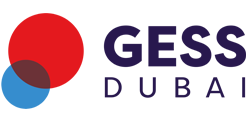Education 2020: How private sector schooling in UAE will expand
New report predicts 175,000 seats will be needed by then — but that is where the private sector comes into play
The UAE is heading towards a milestone year – 2020, when it will host the next World Expo (popularly called Expo 2020). The year is also significant because, according to a new report, more than 175,000 additional school seats are projected to be required in the UAE’s K-12 segment by then.
The country’s rising population, greater economic activity, investment in infrastructure and the run-up to Expo 2020 will attract more expats, who will need school seats for their children.
PwC Middle East, in its new report, ‘Understanding the GCC Education Sector, Country Profile: UAE’, says 90 per cent of the seats will come from private schools, with new schools playing a pivotal role.
The report was released ahead of the recent Global Education Supplies and Solutions (GESS) show in Dubai.
Roland Hancock, Director, PwC Middle East, told Gulf News the body of data indicates the UAE is “well positioned to keep up” with the projected demand for schooling by 2020.
“Between 2005 and 2015, the [population] growth was around 349,000 [people] and the UAE has responded by increasing provision and choice more quickly than ever before, so it seems that the country’s education sector is well positioned to keep up. Current school capacity will not be [able to] come close though – most of the demand will be met by new schools,” Hancock said.
“UN population projections indicate that the UAE’s 5-18 [aged] population will grow by 253,000 between 2015 and 2025. That growth comes from a mix of continued inward migration and birth rates. The extra school-aged children need school places.”
In Dubai, the current 2016-17 school year saw a record 15 new schools open up – more than double the seven schools that opened last school year. A senior official of the Knowledge and Human Development Authority in Dubai told Gulf News those new schools are already nearly 90 per cent full.
The report also notes that parents now have a wider choice of schools, as both the number and quality of schools is climbing. The power of choice has put pressure on those schools not ranked by education authorities as either ‘good’ or ‘outstanding’ to improve their offerings or risk losing students. It is expected, the report says, that “cost will play a critical role in changing the supply-demand dynamic, with calls [from parents in Dubai] to have more quality schools below the average annual tuition of Dh40,000”.
How competition will lead to more choices for parents
Hancock said: “Parents are demanding better quality at a more affordable price point. In Dubai in particular, there are very few schools with an outstanding rating below this average fee rate. The quality of a school comes from its leadership and teachers and the lack of outstanding schools below this threshold suggests that the challenge of being able to invest sufficiently in staff while meeting investor expectations has not yet been resolved.”
With fiercer price competition – and presumably tighter margins – among schools, will it be more difficult for new schools to enter the UAE market? And more challenging for existing schools to expand capacity?
Hancock does not believe competition, if managed well by regulators, will stifle growth.“Competition should be seen as healthy in any market. Increasing competition in the schools sector may lead to investors having to be comfortable with lower margins, but it will also drive innovation and a focus on quality of provision as a differentiator. Regulators need to be sensitive to perceived barriers to entry for new schools and operators, and have to balance encouraging market dynamics with ensuring demand met.”
At the moment, the emerging market seems to be taking care of itself, with new schools in Dubai entering at price points that have successfully attracted their target segment of parents – most of the 15 schools are running at 89 per cent capacity.
However, among existing schools, Hancock said there is still room for more mid-priced schools that are highly rated as well.
He added: “A breakdown of school pricing and quality indicates that, as might be expected, the highest priced schools tend to be the best rated by regulators. Parents naturally want to see their children in the best schools but are often unhappy about the premium they have to pay to get [this] . Many parents would like to see more mid-priced schools which focus on education quality and are highly rated, but this segment is currently limited.”
At a glance:
1) Emerging market taking care of itself — schools’ price points have their target segments. Most of the 15 new schools in Dubai are at 89% capacity.
2) Among existing schools, need for more mid-priced schools; this segment currently limited.
Pre-kindergarten private sector “underserved”
There remain unresolved challenges in the pre-school segment as well. Commenting on the report, Sally Jeffery, PwC Middle East Education and Skills Partner and PwC Global Education Sector Leader, said the Pre-Kindergarten segment – when it comes to the private sector — is “underserved”.
1) Pre-schooling growing at twice the rate of K-12: For example, if the UAE was to reach the OECD average participation rate of 33 per cent for 0-2 year olds by 2020, an estimated 90,000 additional seats will be required. “However, based on historical growth, there will be just over 50,000 places in Pre-K provision, meaning that a steep change in growth in this sector would be required.”
The OECD (Organisation for Economic Co-operation and Development) says in its ‘Education at a Glance 2016: OECD Indicators’ report that “there’s a growing need for early childhood education”, with parents today “more likely to be in the workforce”. It adds that early childhood education is nowadays more widely established as a contributor to children’s emotional, social and cognitive development.
The UAE government has to – and is – encouraging growth in this segment, the report said.
2) Nurseries sector must grow: “The nurseries sector has a growth of 18 per cent per annum since 2010 and under existing law companies and office buildings are allowed to establish nurseries for their working mothers – although few have done so to date,” Hancock pointed out.
“A concern for parents who prefer in-home care is a perceived lack of quality nurseries. To combat this perception and to further increase participation, the government has recently introduced a code of conduct for nurseries to improve standards, including required training sessions for teachers and supervisors, as well as a warning and fining system intended to drive quality improvement.”
GEMS viewpoint
UAE’s biggest private school group – GEMS Education, which runs 47 schools in the country – is optimistic the country will meet the challenges [for 2020]. Dino Varkey, CEO of GEMS Education, told Gulf News that closer coordination is needed between the primary, secondary and tertiary education levels to meet today’s skills gap. He also said the private sector, owing to its greater agility in adopting innovations in curricula and technology, will lead the charge.
“The UAE education system, of which GEMS has been an integral part for over five decades, has evolved to meet the needs of the diverse communities living in our great nation. In the UAE alone, almost 90 per cent of education is now provided by the private sector,” Varkey said.
“Today, the world is mirroring this scenario, and the number of parents and students seeking private sector in education is increasing around the globe. The UAE model has been successful because the private sector has been empowered to provide a range of schooling options across international curricula which meet the ambitions and aspirations of our diverse community.
“As a leading education provider, our commitment is to continuously improve the quality of education across the UAE and in all our schools…”
Road to 2020
175,000 additional school seats are needed in the K-12 segment by 2020
90 per cent of seats to come from private schools
74,500 additional seats in 50 new private schools required in Dubai
62,000 more spaces in 52 new private schools needed in Abu Dhabi
18 per cent is the average annual growth rate in nurseries sector in UAE since 2010
School-aged population to grow by 253,000 people between 2015 and 2025
Source: PwC Middle East report: ‘Understanding the GCC Education Sector, Country Profile: UAE’,
Big numbers
Around 280 English-medium international private schools in Dubai — the most anywhere
Dh40,000 annual fee
The price point in terms of tuition fees at which parents in Dubai have called for more quality schools
Record 15 new schools opened in Dubai this academic year
New Dubai schools mostly running at 89 per cent capacity
Source: KHDA





